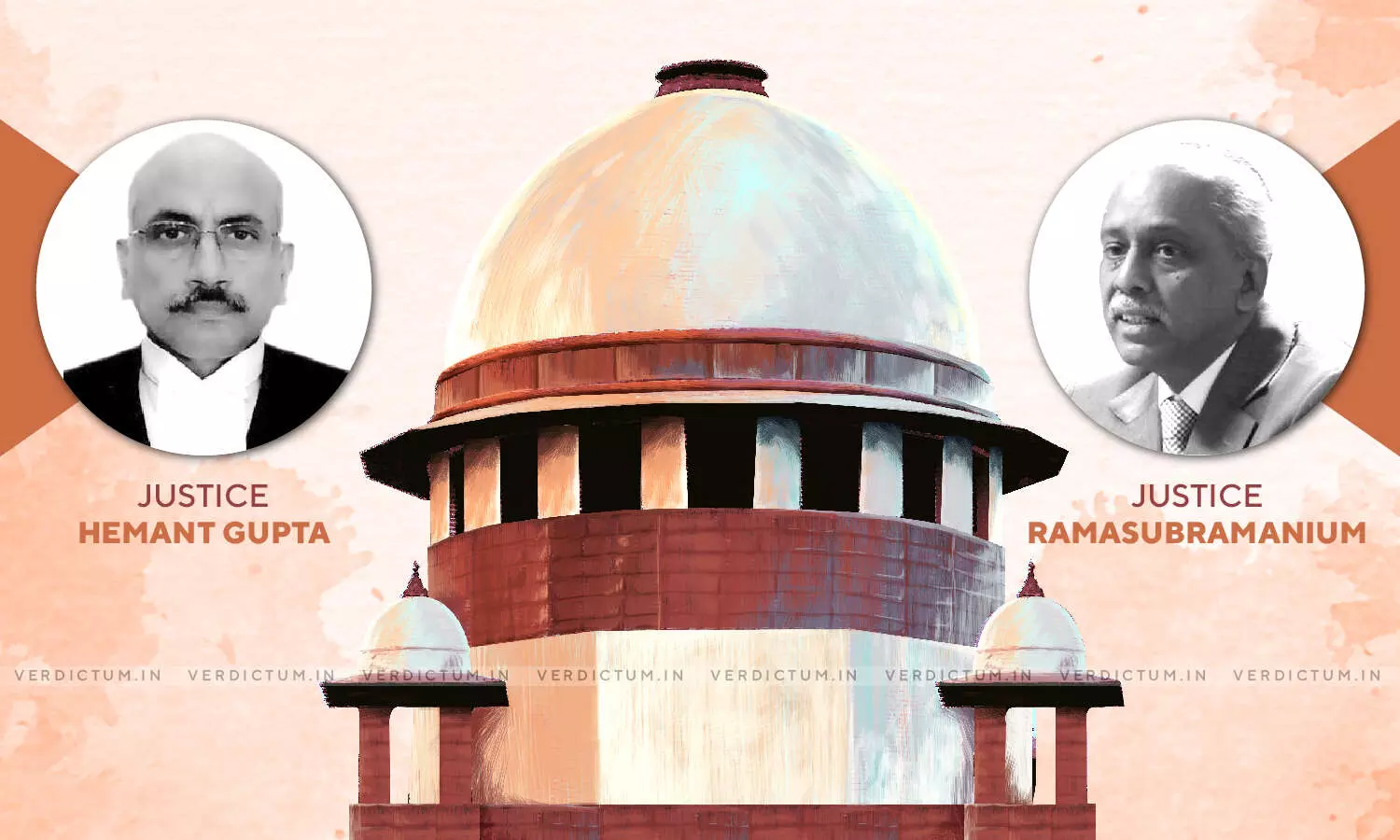
Only "Regulations" Prescribed U/s. 45 Of Architects Act To Obtain Prior Approval Of Central Government: Supreme Court
 |
|The Supreme Court in a recent pronouncement has set aside the impugned order of the Madras High Court pertaining to the Architectural Regulations circulated under The Architects Act, 1972.
The Court held, "It is thus clear from the scheme of the Act that the Council of Architecture may prescribe minimum standards of architectural education, either by way of regulations issued under Section 45(2) or even otherwise. It is only in cases where the Council chooses to prescribe standards in the form of regulations that the requirement of approval of the Central Government under Section 45(1) would become necessary."
The Bench comprising of Justice Hemant Gupta and Justice V Ramasubramanian was hearing an appeal arising out of SLP filed before this Court against the impugned order passed by the Madras High Court in favor of the Respondents - The Academic Society of Architects (TASA) & Ors.
The Respondents in the impugned judgment had challenged the "Minimum Standards of Architectural Education Regulations, 2017" circulated by the Appellant - Council of Architecture vide communications dated 31/10/2018 and 03/12/2018, on the ground that a regulation requires the approval of the Central Government under section 45 of the Act and that the said regulations were not approved by the Central Government.
The Appellant taking into view the provisions of Section 21 had argued before the High Court that communications made under the said section need not obtain prior approval of the government. Appellant, then challenged the locus standi of the Respondent society on the ground that the communications were specifically addressed to the institutions imparting architectural educations and none of such bodies has opposed the same. However, the High Court quashed these communications and observed that the provisions of section 21 have to be mandatorily construed in consonance with the provisions of section 45 that requires the prior government approval.
The Counsel appearing on behalf of the Appellant before the Apex Court argued that the impugned communications were not framed in the nature of any regulations by the Appellant in the exercise of the power conferred u/s 45 of the Act. It was, thus, observed by the Apex Court that communications can be made either in the form of regulations or otherwise, and only the ones made as regulations u/s 45 are required to obtain the prior approval of the government.
The Court further observed that if the communications made under the provisions (e), (g), (h), and (j) of subsection 2 section 45 subsume the stipulations enshrined u/s 21 then there is no requirement of invoking the power section 21 r/w section 45(2) of the Act. Section 45(2)(i) made up the procedural requirements of regulating the professional conduct of the Architects and correspondingly section 22 confers the substantive power upon the council.
It is clear from the construction of the sections 21, 22 and 45 that the council is empowered to make prescriptions of minimum standard not necessarily via regulations but if it does the route of regulations it has to obtain the prior approval of the central government u/s 45(1) of the Act.
Further, the Appellant objected to the maintainability of impugned writ petition on several grounds viz- firstly the circular was addressed to the institutions and the Respondent was a society, secondly, the petitioner was trying to espouse the case of some defaulting institutions that did not meet the minimum standard criterion, and lastly, some of the members of the society were part of the council when it approved the norms pertaining to minimum standard requirements of the institutions back in 2015.
The SC observed that the Madras HC did not take into consideration the aforementioned arguments of the council and decided in favor of the Respondents. It further observed that none of the institutions neither objected to the impugned circular nor to the similar communications made in 1983 or in 2017.
The Apex Court, thus, set aside the impugned order of the HC and held that – "If at all, the 1st respondent society (writ petitioner), due to the nature of its membership, could have been aggrieved only by the prescriptions affecting the teaching faculty. The 1st respondent could not have challenged the prescriptions with which they are not in any way concerned. Unfortunately, the High Court did not address itself to these important issues."
Accordingly, the Court allowed the appeal and set aside the impugned order of the High Court.